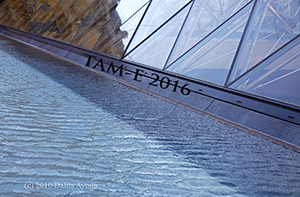The analysis of gesture with speech has been argued to provide insight into the mental representation of how an event occurred in time (Duncan 2002; McNeill 2003; Parrill et al. 2013). Our project considers French, German, and Russian, which exhibit structurally different tense and grammatical aspect systems. Does the gestural behavior of speakers of these languages support a multimodal view of aspect and tense, and if so, how?
The prompts from Becker et al. (2011) were used to elicit short personal narratives about events from ten pairs of university students in each of France, Germany, and Russia. Verbs referring to past events were coded for tense and aspect, and gestures used in the same grammatical clauses as the verbs were coded for their movement quality using a physiologically-based system (Boutet 2010). Building on Müller (2000), we expected a relation between a pulse of effort in gestures (“bounded” gestures) used with perfect(ive) verb forms and the lack of such a pulse (“unbounded” gestures) with imperfect(ive) verb forms.
In French, significantly more bounded gestures were used with the passé composé and more unbounded with the imparfait. In German there was a significant correlation between the perfect tense (Perfekt) and bounded gestures, but for the imperfect tense (Präteritum), the distribution between bounded and unbounded was not significantly different. In Russian, though, bounded gestures were used significantly more frequently than unbounded ones, regardless of the verb aspect. We interpret the results for French and German in terms of the differing functions of the imperfect tense in each language and for Russian in light of other influences on gesture use (lexical semantics, clusters of repeated gesture types). We discuss how the research offers a new approach to semantic analysis in cognitive linguistics, where meaning is increasingly being studied in terms of mental simulation (Barsalou 2008).

 PDF version
PDF version
